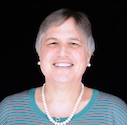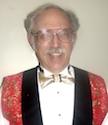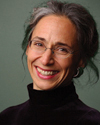Click here for Many Voices, One Art 2018!
Barbershop to Bach; Mozart to Broadway; Plainchant to Spirituals; Body Music to Beethoven; Latin to Luther
Come sing, learn, and have fun with us as we celebrate the rich diversity of Bay Area singing!
FREE – All are welcome! No music reading or vocal training necessary.
Advance registration is required; lunch available (advance purchase only).
| Time | Event | Presenter |
|---|---|---|
| 9:30 – 10:30 | Registration | |
| 10:00 – 10:30 | Opening Sing | |
| 10:45 – 11:45 | Broadway…Jump in the Deep Water | Trente Morant |
| De profundis: Martin Luther to J.S. Bach | Robert Worth | |
| Latin American Songs | Martha Rodríguez-Salazar | |
| Beethoven and Mass writing—the Mass in C and the Missa Solemnis | Alexandra Amati-Camperi | |
| 12:00 – 1:00 | Within & Without: Spirituals Off the Page | Linda Tillery |
| Singing Gregorian chant | William Mahrt | |
| Making a Healthy Sound | Nikolas Nackley | |
| Voice and the Alexander Technique | Kari Prindl | |
| 1:00 – 1:50 | Lunch | |
| 2:00 – 3:00 | Beethoven’s Mass in C: “unbearably ridiculous and detestable” | Magen Solomon |
| Romancero! Songs of the Sephardic Jews | Mark Levy | |
| Learn to Sing Barbershop Harmony | Charles Feltman | |
| Body Music: Hands, Feet, Voice | Evie Ladin | |
| 3:15 – 4:00 | Closing Sing |
Full schedule (PDF). Subject to change.
Beethoven and Mass writing — the Mass in C and the Missa Solemnis
Alexandra Amati-Camperi, University of San Francisco
Beethoven’s relationship to church music, and in particular to the ordinary of the mass, explored in musical and social terms.

Alexandra Amati-Camperi, originally from Italy, holds a BA/MA in Slavic Studies and Philology from the University of Pisa, and a Ph.D. in Musicology from Harvard University. She studied piano and composition at the Conservatory of Music of Lucca. She is Professor of Music at the University of San Francisco. Her research centers around the Italian Renaissance and Italian opera.
Learn to Sing Barbershop Harmony
Charles Feltman, Music Director, SF Cable Car Chorus
You will learn the history of this style, the now recognized science behind it, and tuning exercises. Then by singing a simple song your ears and brain will be trained to the overtones in this style of music.

I was not originally a musician, but an engineer, although I have sung all my life. I became serious when my son, now a PhD Composer, shamed me into learning to read music. Then the Barbershop Harmony Society provided me performance and musical leadership training.
Body Music: Hands, Feet, Voice
Evie Ladin, Crosspulse
Using the oldest instrument on the planet, the human body, we will clap, step, and sing our way through some basic rhythm training and physical multitasking.

A prolific singer, songwriter, percussive dancer and square dance caller, the polyrhythmic heat of Evie Ladin’s clawhammer banjo has been heard from A Prairie Home Companion to Celtic Connections, Lincoln Center to Hardly Strictly Bluegrass. Evie is fluid in traditional Appalachian arts, even as she brings an urban edge and contemporary vision to her inventive performances, recordings and teaching, connecting music, dance and song in captivating, visually musical ways. “Evie Ladin is a natural entertainer with a gift for infusing folk practices with contemporary verve.” — San Francisco Chronicle
Romancero! Songs of the Sephardic Jews
Mark Levy, singer/instructor
We will learn songs in the Judeo-Spanish (Ladino) language that was kept alive for 500 years in exile from Spain.

Mark Levy has performed and taught in the San Francisco Bay area for 30 years at temples, synagogues, JCC’s, Lehrhaus Judaica, Workmen’s Circle, and other Jewish groups. He has appeared throughout the country, in Europe and Israel and is a singer and lecturer who specializes in older Judaic folk music in Yiddish, Hebrew, and Ladino, Klezmer history and theory, and Jewish music history in general. He has performed for Yeshiva University Sephardic Dept.’s Semana Sepharad in New York, and is a cantorial soloist in California. He has released a fourth album of Jewish music entitled Bin Ikh Mir A Shnayderl: Yiddish Work Songs, in commemoration of the 100th birthday of Workmen’s Circle, a fraternal order of Jewish workers.
Singing Gregorian Chant
William Mahrt, Stanford University
Learning simple Gregorian chants from memory, beginning to read square notation, appreciating the beauty of the melodies.

William Mahrt grew up in Washington State, attending Gonzaga, University of Washington, and Stanford. He taught at Case Western University, the Eastman School, and now teaches Medieval and Renaissance music at Stanford. He directs the Stanford Early Music Singers and the St. Ann Choir in Palo Alto.
Broadway….Jump in the Deep Water
Trente Morant, Berkeley Broadway Singers
We will spend time sampling the Broadway styles, melodies, movement, light rap, why not!!! Let’s do something you have not done before.

Trente is in demand as a conductor, arranger, accompanist, and performer. A graduate of Westminster Choir College in Princeton, New Jersey, he worked as a chorister with Eugene Ormandy, William Steinberg, Leonard Bernstein, Zubin Mehta, Robert Shaw, Roger Wagner, and Joseph Flummerfelt, while studying voice and conducting. Trente currently lends his musical talents to the Berkeley Broadway Singers, the Sunnyvale School District, and the First Unitarian Church of Oakland.
Make A Healthy Sound – Fundamental Technical Concepts for Choral Singers
Nikolas Nackley, UC Berkeley and San Francisco State University

Nikolas Nackley is Director of UC Berkeley Vocal Studies and University Chorus, and Director and Lecturer of Voice and Opera at San Francisco State University.
Voice and The Alexander Technique
Kari Prindl, Faculty, American Conservatory Theater, MFA program
The Alexander Technique teaches the singer how to notice and address habits that interfere with the natural design of the vocal structure and of the body as a whole. This profound awareness technique opens both the voice and the breath.

Kari has been teaching the Alexander Technique since 1992, specializing in working with performers. Along with her private practice, she has taught at these institutions: San Francisco State University, San Francisco Conservatory of Music, Henderson State University in Arkansas, San Francisco Community Music Center, American Conservatory Theater.
Latin American Songs
Martha Rodríguez-Salazar, Community Music Center Choir director, with Jennifer Peringer, accompanist (accordion)
We will be working with Latin syncopated rhythmic patterns through clapping and stepping exercises. We will learn together two songs in Spanish – El Cumbanchero from Puerto Rico and La Malagueña from Mexico in two part harmonies.

Conductor, singer and flutist Martha Rodríguez-Salazar has been bringing Latin American folk, classical and contemporary music to the Bay Area for more than 17 years. Martha is a faculty member of the Community Music Center, where she conducts five community choirs in Spanish, English and Tagalog. She works with her wife Jennifer Peringer as an arranger, pianist and accordionist.
Beethoven’s Mass in C: “unbearably ridiculous and detestable”
Magen Solomon, San Francisco Bach Choir
An introduction to this little-known, very singable, and very Beethoven-ish gem (despite his patron Prince Esterházy’s opinion). We will learn to sing short portions, exploring Beethoven’s genius and style.

Magen Solomon is the Artistic Director of the San Francisco Bach Choir.
Within and Without: Spirituals Off the Page
Linda Tillery, Cultural Heritage Choir
Offering participants an opportunity to learn and sing 3 African-American spirituals including the history, style and relevance of these spirituals. We will explore authenticity in musical expression, and will also discuss the difference between the folk and concert spirituals.

A San Francisco native, Linda Tillery is Artistic Director and founder of the Cultural Heritage Choir, which began in 1992. This percussion-driven vocal ensemble is dedicated to preserving and sharing the rich musical traditions of African-American roots music. She has led workshops and clinics for the Oakland Symphony Chorus, the University of Cincinnati Concert Choir , the MIT Concert Choir, among others, and been in residence at Stanford University and Williams College.
De profundis: Martin Luther to J.S. Bach
Robert Worth, Music Director, Sonoma Bach
An exploration of the genesis and history of ‘Aus tiefer Not schrei ich zu dir’, Luther’s chorale paraphrase of Psalm 130. We will take a close look at–and sing–the tune, and explore some of its brilliant settings over two centuries, closing with movements from Bach’s Cantata 38 (1723).

Robert Worth is the founding music director of Sonoma Bach. He is Professor Emeritus at Sonoma State University, where he led the choral ensembles and taught many other subjects for 29 years. He was deeply involved in fundraising and vision-building for the Green Music Center project, and served as consultant on such issues as acoustics, choral performance facilities and the pipe organs in Schroeder Hall. Information on Bob’s current work can be found at www.sonomabach.org.
